“Enter the Dragon” (1973) is a martial arts action film directed by Robert Clouse and stars Bruce Lee in one of his most iconic roles.
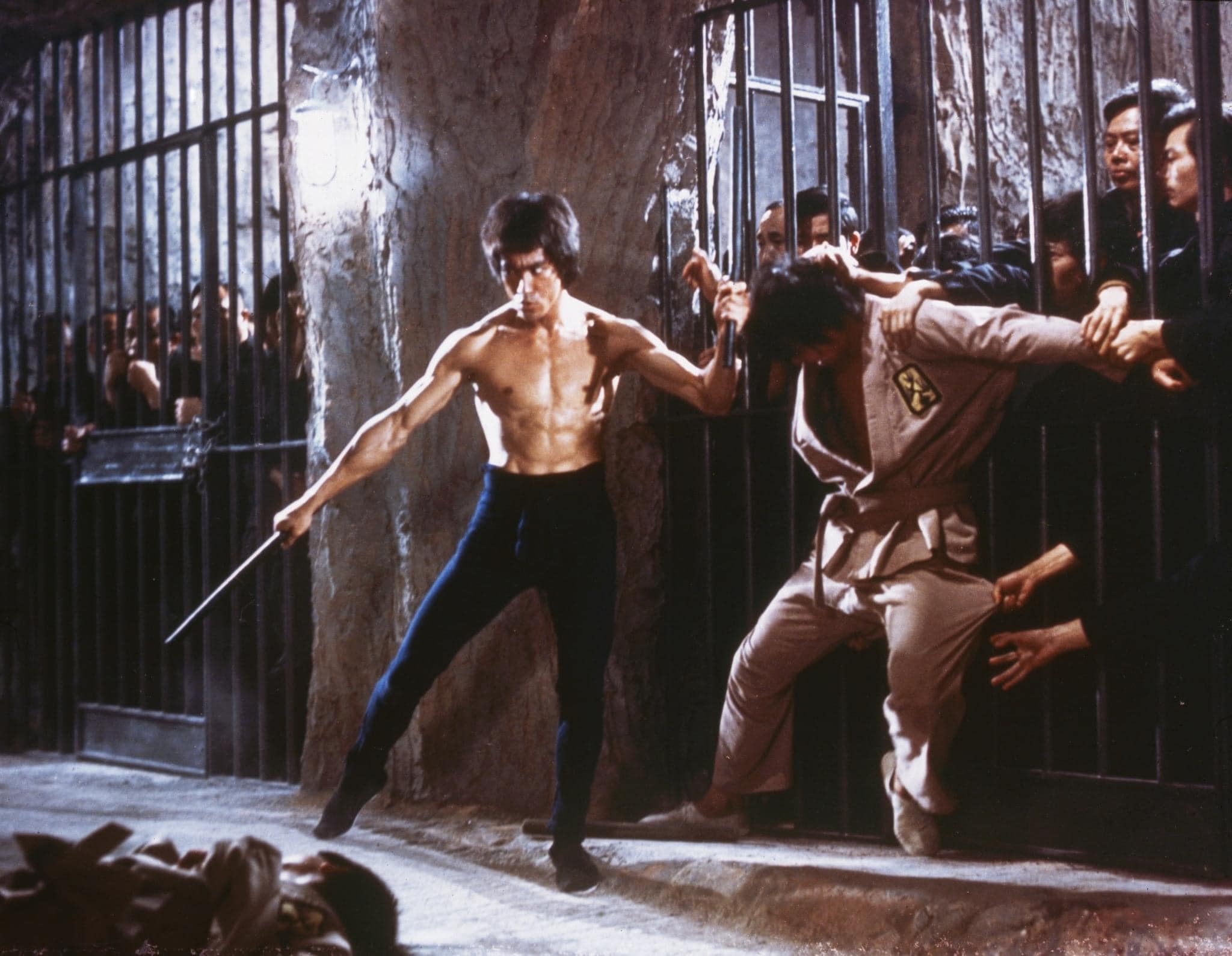
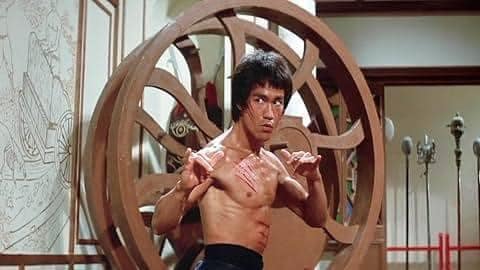
Lee travels to Han’s island, where he meets other contestants, each with their own reasons for being there. Among them are Roper (John Saxon), a charming but financially troubled American playboy, and Williams (Jim Kelly), a charismatic African-American martial artist who has left the United States to escape racial discrimination and police harassment. As they settle into the island’s luxurious facilities, the fighters quickly realize that the tournament is merely a front for Han’s nefarious operations.
During the tournament, the contestants showcase their unique fighting styles in a series of intense, well-choreographed battles, with Lee demonstrating his unparalleled speed, agility, and mastery of various martial arts techniques. However, Lee’s real mission begins under the cover of night. Using his stealth and martial arts skills, he secretly explores the island and uncovers evidence of Han’s illegal activities. He discovers an underground complex filled with armed guards, opium production facilities, and prisoners forced into labor, all controlled by Han’s ruthless enforcers.
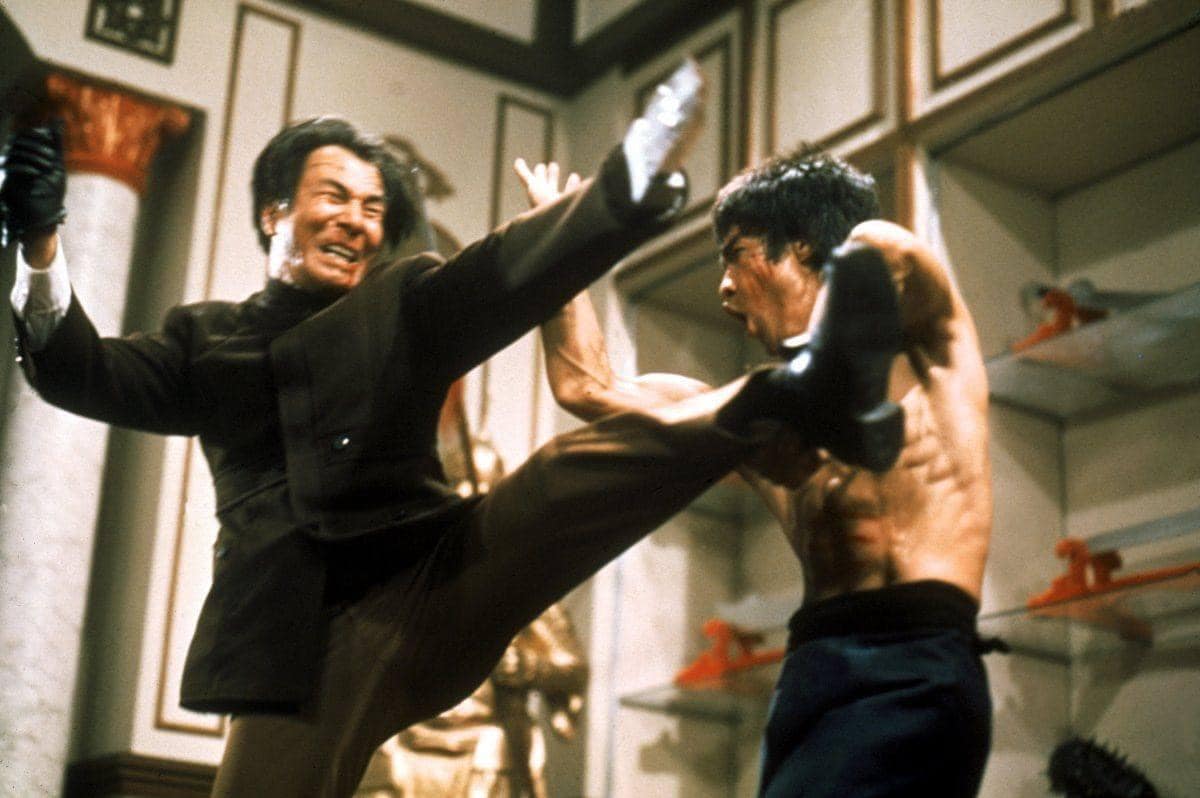
Lee’s investigation puts him in increasing danger, especially when Han begins to suspect that someone is infiltrating his operations. Meanwhile, Roper and Williams find themselves drawn deeper into the island’s dark underbelly. Williams, driven by his moral compass, becomes a target after he uncovers Han’s cruelty and exploitation of the island’s inhabitants. In a gripping confrontation, Williams faces Han and is killed, serving as a brutal warning to the other contestants.
As the tension mounts, Han reveals his true nature. During one of the tournament’s final matches, he forces Roper to fight his friend, Lee. However, Roper refuses, showing his allegiance to Lee and his growing disgust with Han’s operations. This act of defiance sets off a chain of events that leads to an all-out battle between Han’s forces and the tournament contestants who side with Lee.
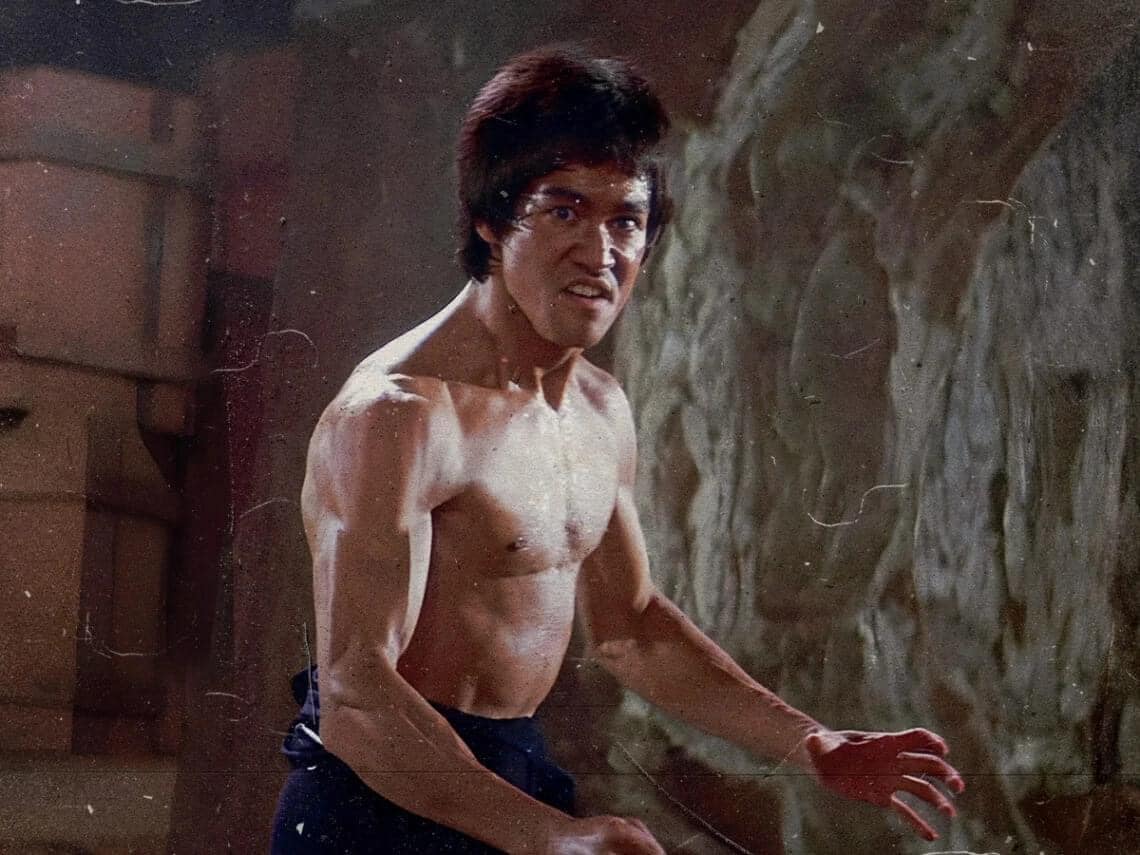
In the film’s climactic sequence, Lee confronts Han in a hall of mirrors. The scene is one of the most iconic in film history, showcasing Lee’s psychological and physical battle against a formidable foe. Han, armed with a bladed prosthetic hand, uses the mirrors to disorient Lee. However, drawing on his training and inner focus, Lee smashes the mirrors to eliminate the illusions, finally defeating Han in a tense and visceral showdown.
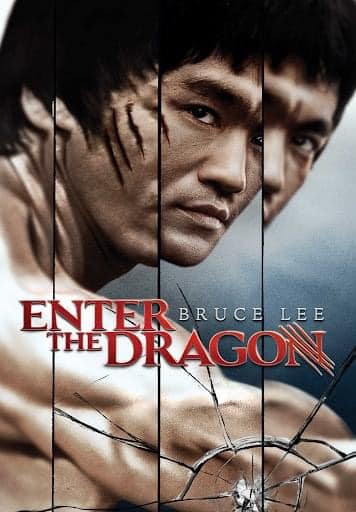
“Enter the Dragon” concludes with Lee and Roper successfully overcoming Han’s forces, liberating the island’s prisoners, and signaling the arrival of authorities to shut down the criminal operation. The film ends with a sense of triumph and bittersweet reflection, as Lee gazes over the now-liberated island, honoring the memory of his sister and the fallen Williams.
The movie is not only a showcase for Bruce Lee’s martial arts skills but also a film with deeper philosophical underpinnings, exploring themes of honor, justice, and the warrior’s path. “Enter the Dragon” solidified Bruce Lee’s legacy as a martial arts legend and left an indelible mark on the genre, influencing countless action films and martial artists around the world for generations to come.

WATCH:











